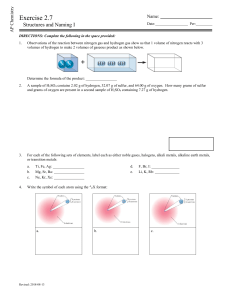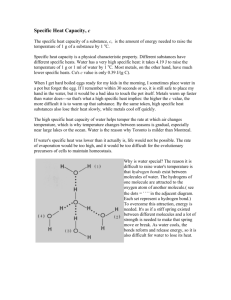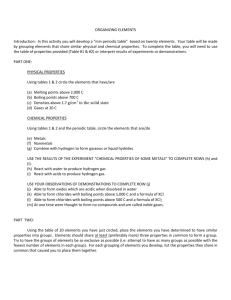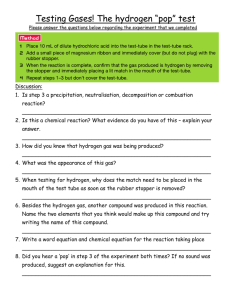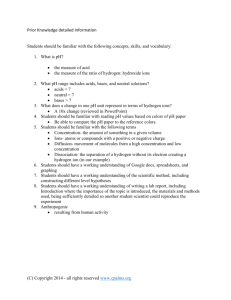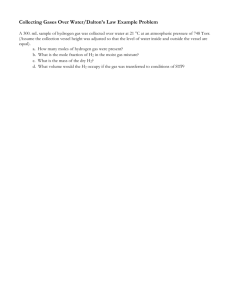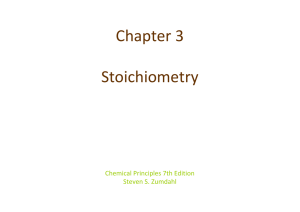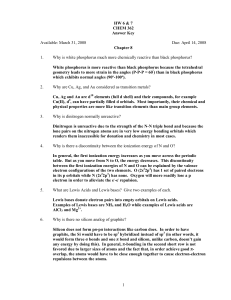Available: March 31, 2008 Due: April 14, 2008 1.
advertisement
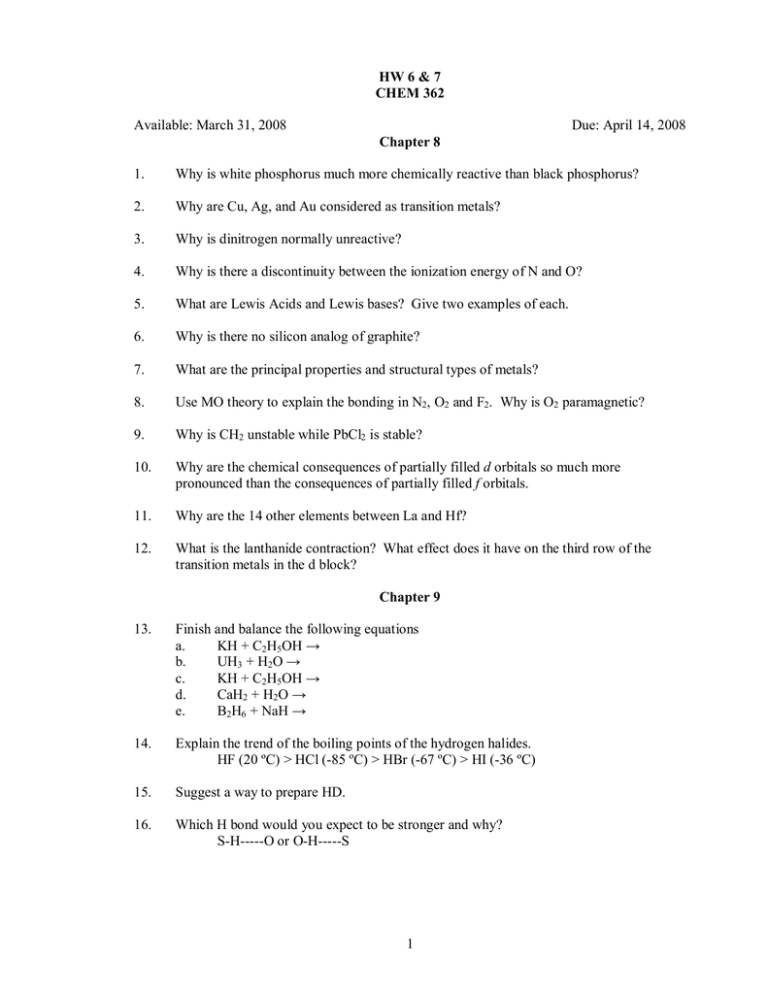
HW 6 & 7 CHEM 362 Available: March 31, 2008 Due: April 14, 2008 Chapter 8 1. Why is white phosphorus much more chemically reactive than black phosphorus? 2. Why are Cu, Ag, and Au considered as transition metals? 3. Why is dinitrogen normally unreactive? 4. Why is there a discontinuity between the ionization energy of N and O? 5. What are Lewis Acids and Lewis bases? Give two examples of each. 6. Why is there no silicon analog of graphite? 7. What are the principal properties and structural types of metals? 8. Use MO theory to explain the bonding in N2, O2 and F2. Why is O2 paramagnetic? 9. Why is CH2 unstable while PbCl2 is stable? 10. Why are the chemical consequences of partially filled d orbitals so much more pronounced than the consequences of partially filled f orbitals. 11. Why are the 14 other elements between La and Hf? 12. What is the lanthanide contraction? What effect does it have on the third row of the transition metals in the d block? Chapter 9 13. Finish and balance the following equations a. KH + C2H5OH → b. UH3 + H2O → c. KH + C2H5OH → d. CaH2 + H2O → e. B2H6 + NaH → 14. Explain the trend of the boiling points of the hydrogen halides. HF (20 ºC) > HCl (-85 ºC) > HBr (-67 ºC) > HI (-36 ºC) 15. Suggest a way to prepare HD. 16. Which H bond would you expect to be stronger and why? S-H-----O or O-H-----S 1 17. Give an explanation of the structural role of water in each of the following compounds and give an example of each type. a. A hydrated compound b. A hydrous compound c. A gas hydrate d. A liquid hydrate e. A salt hydrate 18. When a H bond is symbolized as X-H-----Y, what do the solid and dashes lines mean? Which distance is shorter? 19. Define and cite examples of the different types of hydrogen-containing compounds that are discussed in this chapter, listing the distinguishing electronic, structural, and reactivity characteristics of each class. 20. What are the three methods for producing hydrogen gas? Describe one of them. 21. Write out representative reactions for the 7 reaction types of hydrogen gas as discussed in class. 22. What is the difference between a proton, atomic hydrogen and hydride? 23. Water has several interesting properties that are needed for life as we know it. Three of these were discussed in class. List them and briefly mention why each is needed for life. 24. What are clathrates? 2
